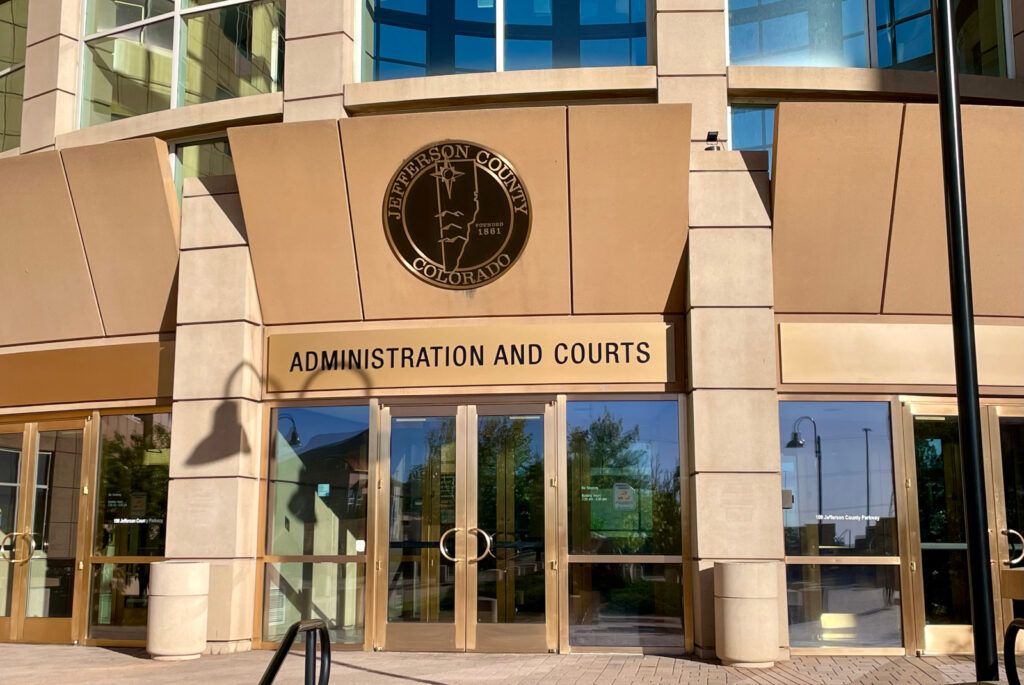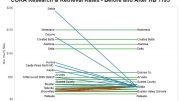By Jeffrey A. Roberts
CFOIC Executive Director
Lakewood’s appeal of a judge’s order to disclose blurred body-worn camera footage of police shooting and killing a 17-year-old robbery suspect in 2023 “is a transparent attempt to turn back the clock” on Colorado’s Law Enforcement Integrity Act, the Colorado Freedom of Information Coalition and other organizations say.
The 2020 law “unequivocally established the public’s right to timely access to video and audio footage from body-worn cameras of Colorado peace officers,” asserts a friend-of-the-court brief submitted by the organizations to the Court of Appeals. “… However, its effectiveness depends on court rulings that endure consistent application.”

Drafted by attorney Katayoun Donnelly, the brief supports Scripps News in its lawsuit against Lakewood for withholding the video from reporter Lori Jane Gliha, despite the Law Enforcement Integrity Act’s mandatory-release deadlines.
Last May, Jefferson County District Court Judge Chantel Contiguglia found that “a plain reading of the law” requires release of the footage, rejecting the city’s claim that the Colorado Children’s Code protects the deceased teen’s privacy. However, the Court of Appeals stayed Contiguglia’s order in September pending the outcome of the city’s appeal.
The case concerns the shooting of Mariana Martinez by Lakewood police on March 27, 2023. According to a news story, the department initially said Martinez fired at officers but clarified the next day that she pointed a gun at them. First Judicial District Attorney Alexis King found that the officers’ use of deadly force against Martinez, a robbery suspect, “was legally justified to defend themselves and others from the threat posed by Miss Martinez.”
The Law Enforcement Integrity Act requires the release of unedited video and audio of incidents “in which there is a complaint of peace officer misconduct” no later than 21 days after a request is made or 45 days from the date of an allegation of misconduct if the video “would substantially interfere with or jeopardize an active or ongoing investigation.”
Redactions are allowed if a video “raises substantial privacy concerns” for criminal defendants, victims, witnesses, juveniles or informants. The judge ordered Lakewood to blur the “entirety” of Martinez’s head because of the “distinct coloring of her hair.” But she did not order the muting of audio in the body-cam footage, as requested by senior city attorney Patrick Freeman, because the Law Enforcement Integrity Act doesn’t authorize audio redactions.
A brief filed with the Court of Appeals by Freeman argues that the footage cannot be released to the public because blurring is “insufficient” to protect Martinez’s “substantial privacy interests” and that her family “has not provided a written waiver of the privacy interest protection.” It also contends Contiguglia “erred by concluding, without proper statutory analysis” that the Law Enforcement Integrity Act “does not have interplay with the legal requirements surrounding juvenile records set out” in the Children’s Code.
But Lakewood “cannot identify any basis for a privacy interest — let alone a substantial one — in this case,” Donnelly wrote in the brief prepared for CFOIC, the Associated Press, the Fort Collins Coloradoan, Colorado Community Media, The Denver Post, Gray Local Media and the National Freedom of Information Coalition.
“The plain language of the statute does not distinguish between adults and minors,” the brief says, adding that Martinez was not the subject of any juvenile proceedings nor was she a witness or a “victim” under the statutory definition of that term. “Moreover, had she survived and had Lakewood not prosecuted her as an adult, the serious nature of the felony gun-related crime would have excluded her from any protections afforded to minors under the Children’s Code in juvenile proceedings.”
The brief includes examples of several jurisdictions across the state, including the Colorado State Patrol, voluntarily releasing blurred body-cam footage depicting minors “without hesitation or protracted legal proceedings.” And “it’s unclear how Lakewood could assert a privacy interest” in protecting Martinez’s identity when the autopsy report on her death — including her full name and date of birth — was released to the public under the Colorado Open Records Act, it adds.
“[T]he fact that the individual whose death involved peace officers was a minor heightens the public’s interest in obtaining timely access” to the footage, Donnelly wrote, adding that Lakewood’s violation of the 21-day disclosure deadline in the Law Enforcement Integrity Act “destroys the contemporary news value of the information the press seeks to disseminate, infringing on the public’s right to speedy access.”
Follow the Colorado Freedom of Information Coalition on X (formerly Twitter) @CoFOIC. Like CFOIC’s Facebook page. Do you appreciate the information and resources provided by CFOIC? Please consider making a tax-deductible donation.




